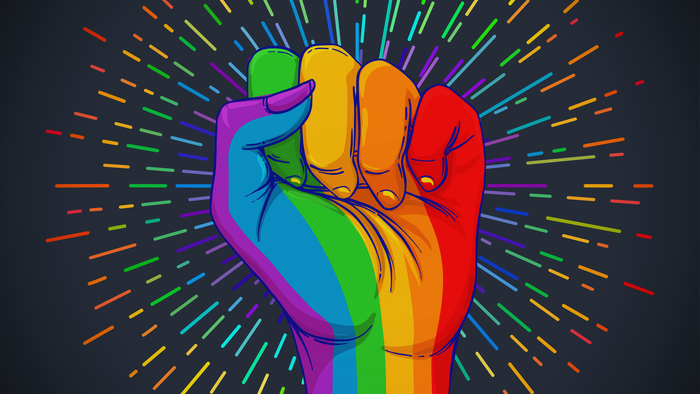
Under the amended law the LGBT community will get more legal protection against discrimination on the basis of sexual orientation.
Voters have endorsed a proposed law to make it illegal to discriminate against people based on their sexual orientation. A challenge by conservatives clearly failed at the ballot box.
Final results from Sunday’s ballot show 63.1% of voters came out in favour of extending current anti-racism legislation. Opposition came mainly from rural regions in central and eastern regions of the country. The highest approval rates were recorded in French- and Italian-speaking regions and urban areas.
Opponents, who forced the referendum ballot, admitted defeat but vowed to fight against further amendments for other social minorities.
“We will keep a close eye on the implementation of the law and want to make sure that the freedom of expression remains guaranteed,” David Trachsel of the referendum committee told public television, SRF.
Campaigners from the LGBT community described the result as a “clear signal against hatred”. They said they will continue to their political fight for same-sex marriage due to be discussed in parliament next month.
The reform, which will expand existing anti-racism regulations to include homophobia, was approved by parliament in 2018. But a small ultra-conservative religious group, the Federal Democratic Unionexternal link, supported by the right-wing Swiss People’s Party, then collected enough signatures to force a nationwide ballot.
Opponents argued that the law undermines the right to free speech, and that the LGBT community doesn’t need special legal protection. Current legislation is enough to prevent insults, slander and other forms of violence or ill-treatment, they say.
‘Political signal’
However, supporters – a clear majority in parliament, most political parties and the government – called for the reform following a 2010 Supreme Court ruling which found that homosexual and transgender groups lack the sufficient legal means to fight against discrimination.
They also pointed out that other countries in Europe have included homophobia in their criminal codes and that the legal loophole in Switzerland has drawn criticism from international rights groups.
According to the Rainbow Map of 49 countries’ respect LGBT rightsexternal link, Switzerland currently ranks just 28th.
Justice Minster Karin Keller-Sutter has described the reform as a “political signal” against hate speech and discrimination. She rejected allegations of censorship and dismissed concerns of a flood of legal disputes.
She referred to a nationwide referendum in 1994 when about 55% of voters endorsed the anti-racism law sanctioning discrimination based on racial, ethnic or religious background: a reform that was opposed by a small far-right party together with a conservative group fighting for cantonal autonomy.
Campaign
The campaign ahead of Sunday’s vote began about a month ago and remained comparatively low-key.
Opponents of the law managed to create some public controversy in the last few weeks, notably in social media, pollsters said. But a strong majority of citizens agree that tolerance towards minorities is deeply rooted in Swiss society.
Surveys found no significant differences between age groups, genders or linguistic regions of the country. Only People’s Party grassroots supporters appear to reject the extension of the anti-racism norms.
Turnout is expected to be below average in the first set of nationwide votes following last October’s parliamentary elections.
READ FULL STORY HERE: CLICK LINK


